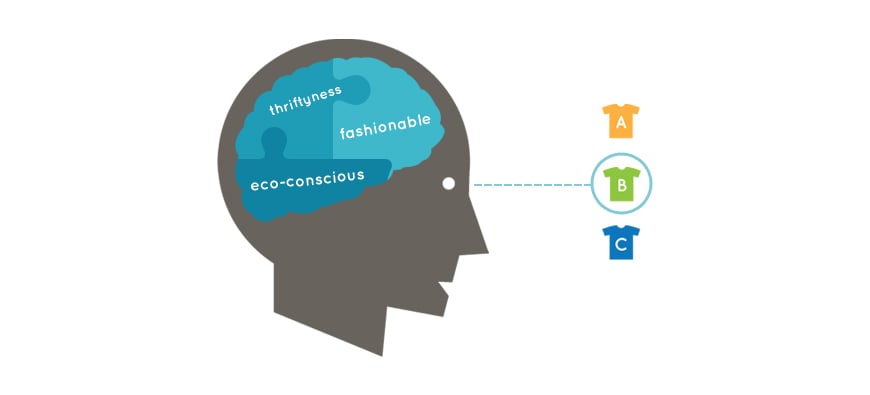Personality Traits as Chronic Motivations Get Around the Confabulator
Personality Traits as Chronic Motivations Get Around the Confabulator
The object of study of personality psychology is primarily traits--patterns of emotional, attitudinal, and behavioral differences that tend to be stable over the lifespan and across situations, and that differ between individuals. One can conceptualize personality traits as chronic motivations, motivations that a person tends to have across their lifespan and across different situations. Conceptualizing personality traits as chronic motivations offers a novel way to study consumer decision-making and behavior.
As any marketer will tell you, consumers are notoriously bad at reporting the reasons behind their purchasing behavior. It is often as though they are simply guessing at what another person’s likely motivation might have been when they are asked why they like a product or brand, except unlike with their answers about others, they tend to be completely confident in the reports they give about themselves. This is not just a handy analogy, it is a direct result of an important design feature of the human mind, in which the confabulator system is responsible for explaining one’s behavior, yet this system often has no insight into the decision-making process, and must merely guess at likely motivations for one’s own actions, just as one might guess at someone else’s likely motivations. Sometimes these guesses are right, but very often they are wrong, meaning the output of this system--people’s explicit verbal reports--cannot be trusted.
In order to figure out people’s true motivations, a way must be found to circumvent the confabulator system, and explicit self-reports cannot achieve this since they can’t be trusted. We use data that connects people’s chronic motivations, their personality traits and trait preferences, to the decisions that they make, allowing us to distill out the true motivations behind their behavior and decision-making. If the decisions of a set of people are known, and one has a measure of their traits, the traits can be connected to the decisions to fish out people’s true motivations without requiring explicit self-reports.
To understand people’s true motivations we begin by assessing many people on a large number of consumer-relevant traits. We do this using our proprietary trait scales that measure everything from extraversion, to eco-consciousness, to how analytical someone is, to how much they like to own unique things. Then we collect data on what they buy, and the important features that drive such decisions. Analyzing this dataset can reveal motivations without having to ask them directly, as they can be inferred from statistical results that show which traits (i.e., which chronic motivations) lead to specific kinds of behaviors, or make specific product or brand features attractive.
We recently did some research for a dairy company, with a local distribution network centered around their farm. Perhaps unsurprisingly, and as many people could likely have told us in explicit reports, two of the motivations for purchasing this milk were eco-consciousness and supporting local businesses. However, we found a second cluster of motivations, which centered on desiring unique and exclusive products, something we would not have predicted for a product as simple as milk. Furthermore, people could not report this motivation. Saying that one wants to buy exclusive milk sounds silly, so the confabulator steps in and proposes other kinds of motivations that we found were not connected with purchasing the milk, such as nostalgia (the milk is packaged in glass bottles, and is delivered, making this a tempting target for a confabulator system trying to spin a likely story).
The point here is that sometimes people can report their motivations (e.g., eco-consciousness, supporting local businesses), but sometimes they can’t (e.g., desire for uniqueness), and sometimes they report false motives (e.g., nostalgia). The only way to confirm that reported motivations are true or not, and uncover motivations we would not have suspected, is by circumventing the confabulator system. The chronic motivations that can be measured as traits allow us to do just that.


